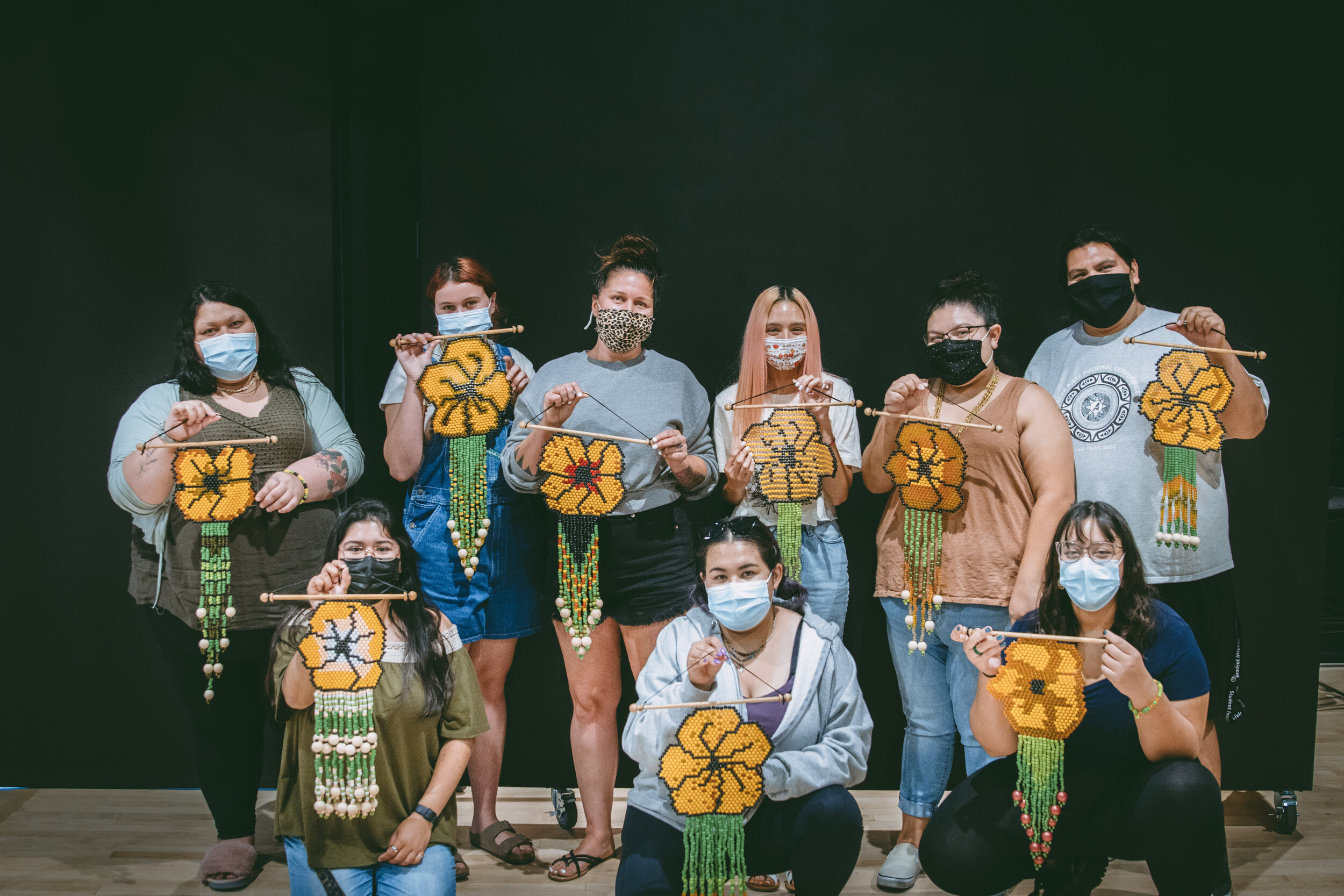Mekachaa: Plant Relative of Resistance
Photo by Kenneth Lopez
Mekachaa: Plant Relative of Resistance
In his work as a cultural educator and an advocate for California native plants, Tongva elder Craig Torres continually urges non-Native peoples to recognize that plants are relatives and must be treated with respect and reciprocity. Indeed, he urges non-Native folks to decenter humans from the way we think about the natural world more generally, and to understand that humans are not the only living beings. This articulation of the relationship between humans and plants (as well as lands, waterways, animals, etc.) is reiterated by numerous other Native communities and is foundational to Indigenous ways of knowing and being. The ecological intelligence of Native peoples and the unsettling of white-supremacist ideologies of human domination over the natural world is central to any and all work regarding climate advocacy, land acknowledgement, land repatriation, decolonization, and the like. As a collective of non-Tongva Native peoples and allies living on unceded Tongva (as well as Tataviam, Acjachemen, Luiseño, Cahuilla, and Serrano) lands, we have come together to deepen our knowledge of our California plant relatives and to reflect on our responsibility to the original and current stewards (as well as their ancestors and descendants, past, present, and future) of the California Indian lands that we occupy.
Mekachaa: Plant Relative of Resistance is a collaboratively-produced, social-justice-oriented public art project aimed to recenter California Poppies, designated as the California state flower in 1903, as a California native plant relative (referred to by Tongva peoples as Mekachaa) that has been dominated and commodified by white-supremacy and colonialism for far too long. Whether portrayed as a symbol of the “golden state,” literally described as “living plant gold” by John Muir, or as a weedy and invasive plant that can’t be tamed and controlled, Mekachaa have been treated as a resource to be extracted and capitalized in attempts to eradicate California Indian peoples and to lay claim to California Indian lands.
Like California Indian peoples, however, Mekachaa are resilient. Drought-tolerant, self-seeding, fast growing, and able to withstand extreme heat, they have resisted the violence and displacement of white-supremacy and capitalism. Despite being marketed and exploited as nothing more than an Instagram backdrop or a symbol of California exceptionalism, Mekachaa continue to live and work in relation to California Indian communities, providing sustenance, medicine, and cultural teachings. This project aims to be a reminder of California Indian survivance. It is a disruption of the original and ongoing erasure of California Indian lands, peoples, and knowledges, as well as of the specific gentrification and ongoing displacement of Native peoples in Los Angeles.
Artists
Kimberly Robertson (Mvskoke), Project Director
Madi Garcia (Kumiai), Project Assistant
Estella Burque (Mvskoke)
Liana Rios (Yoeme [Yaqui] / Quechuan)
Panda (Apache)
LeeAna Espinoza Salas (Cahuilla)
Olivia Espericueta (Descendant of La Jolla Band of Luiseño)
Marina Perez
Arianna Perez
Xitlally Lopez
Raven Freebird (White Earth Mississippi Band of Ojibwe)
With support from Meztli Projects and Samantha Morales Johnson (Tongva).
For more information contact:
Kimberly Robertson (IG @kdrslaysthepatriarchy, goldenrobertson@gmail.com)












